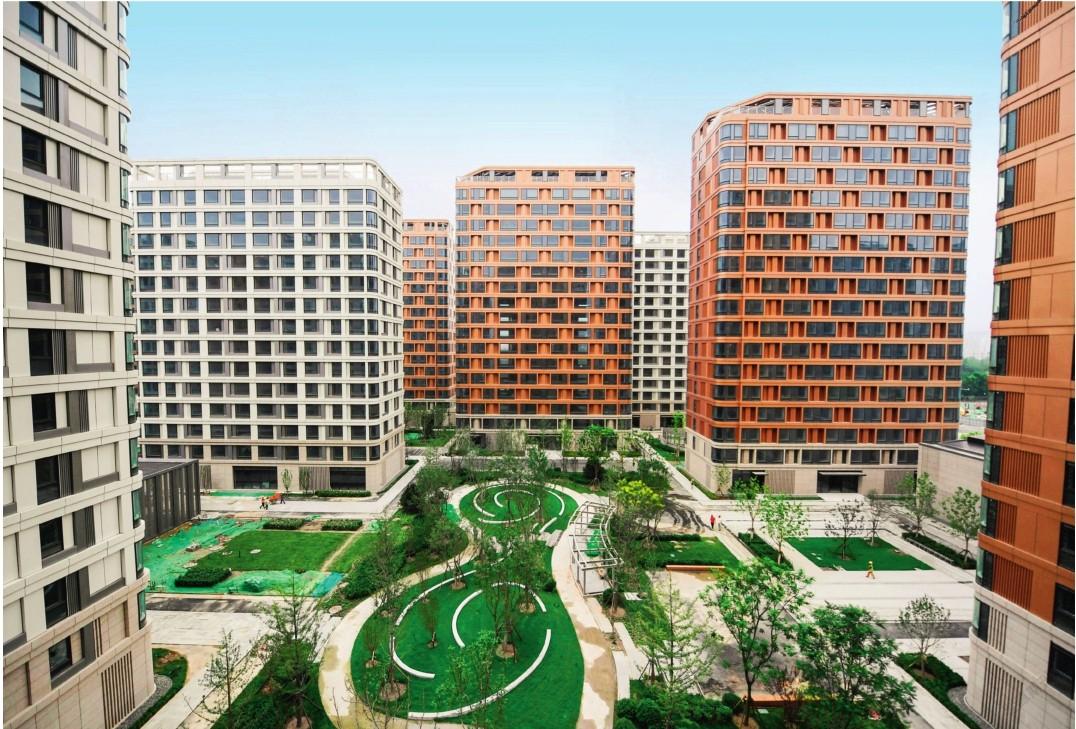From Icy Galas to Winter Olympics
2021-02-03byWangShuya
by Wang Shuya


The first snow of Beijing this winter has already fallen. The arrival of ice and snow brings the Beijing 2022 Winter Olympic Games even closer.
Olympic culture and traditional Chinese elements are apparent everywhere in the Chinese-styled Winter Olympic and Paralympic Village for Beijing 2022, which will provide full-time service for athletes, coaches, and officials during the Games.
The village design of a garden between two big courtyards surrounded by residential buildings was inspired by a painting during Emperor Qianlongs reign in the Qing Dynasty (1644-1911). The painting depicts the scene of the traditional Chinese ice game bingxi.
Athletes get a birds-eye view of the “ice tracks” from their rooms and feel the timelessness of the bingxi garden.
Housed in the Palace Museum, the painting shows a grand scene of a bingxi gala performed for an imperial audience: On the ice rink of frozen Taiye Lake outside the west gate of the Forbidden City, court officials stand by the emperors carriage and watch the ice sports with him. The royal army presents a grand parade on the ice, demonstrating various ice-skating skills. The scrollbased painting shows more than 1,000 skilled ice skaters performing various stunning moves, which amazed the evaluation team of the International Olympic Committee and proved an impressive piece for Beijings successful bid to host the 2022 Winter Olympics.
Looking into history, the current popularity of ice and snow sports in Beijing can be traced back to the ancient ice-playing tradition. Bingxi originated from the winter activities of some ancient nomadic ethnic groups in northern China. It developed into a popular ice sport in various styles during the late Ming Dynasty (1368-1644) and the early Qing Dynasty.
When the Manchu ethnic group from northern China seized power as the Qing Dynasty, development of bingxi peaked. During Emperor Qianlongs reign of the Qing Dynasty, bingxi was designated a national sport and included in regular performances for emperors and royal families. Bingxi eventually gained wide acceptance by the aristocracy and ordinary people alike and the term came to encompass any ice sports in northern China.
Over hundreds of years of development, China formed a unique tradition of ice sports starkly contrasting the ice and snow traditions of Europe. In line with modern Olympic spirit of “higher, faster and stronger,”Chinas traditional ice sports events also feature harmony and discipline alongside respect for old customs in its long history.

“In fact, China formed a tradition of ice sports a long time ago, which originated from the work and everyday life of Chinese people living in the northern alpine regions,” states the book On the Origin of Ice-Sports. “In the ice and snow environment, people developed ancient skating tools. As the northern peoples conquered other parts of China, ice sports traditions were linked to the rise and fall of state power. A mature form of ancient ice sports, bingxi developed alongside the founding, development, and decline of the Qing Dynasty.”
On the Origin of Ice-Sports deploys many document files and images to show readers the history of bingxi from the aspects of nature and geography, military and war, political systems, and folk customs. It analyzes the core spirit and unique character of Chinese traditional ice sports and devotes many chapters to describe the bingxi gala, the highest level of Chinese ice sports in the Qing Dynasty.
Traditional Chinese ice sports represented by bingxi have become an important part of the traditional Chinese sports culture. Soon, Beijing will host the 2022 Winter Olympic Games and become the first city ever to host both the Summer and Winter Olympics. The recent boom of ice and snow sports in China has helped traditional ice sports like bingxi emerge with new vitality. The Olympic Games are a window to see the charm of different civilizations and an opportunity to bridge people from all over the world. Chinas long history and unique ice and snow culture will certainly add new glamor to the Olympic spirit and culture.
